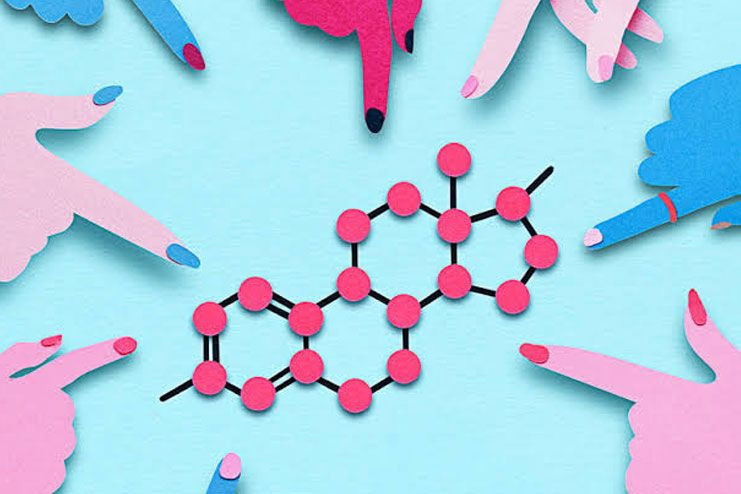Affiliate Disclaimer
Some links in this article are affiliate links. We may earn a small commission if you make a purchase through these links, at no extra cost to you. We only recommend products we find useful to our readersLosing one’s virginity is deeply personal and often a culturally momentous milestone. It represents a significant shift from childhood to adulthood and frequently has an effect on one’s emotional and mental health. Biochemical alterations associated with this moment differ widely among individuals. It is vital to understand the possible mental, physical, and hormonal changes that could coincide with this event.
In this article we want to help readers gain a better understanding of the changes that may take place when you lose your virginity, both in your body, and also in your relationship dynamics. Examining these shifts in a manner that is both factual and informative, we hope readers gain a more profound understanding of what to anticipate and how to traverse this critical time of their lives successfully.
8 Possible Changes:
1. Physical Changes
Individuals who are just embarking on this new journey must have a thorough understanding of the physical changes that take place in your body as it prepares itself for intercourse. This understanding will enable you to approach your first experience mindfully and be aware and prepared to manage these biological responses.
You may experience a variety of physical changes as your body readies itself, these changes are different for males to females. The primary physical change frequently noticeable in males is the erection of the penis, which results from an increase in the amount of blood flowing to the genital area. Additionally, this increases sensitivity and can lead to the release of seminal fluid during ejaculate activity.
Vaginal lubrication, dilatation of the vaginal walls, and increased blood flow to the pelvic region are all examples of the physical changes that can occur in females. These changes make it easier for them to engage in sexual activity more comfortably.
Both males and females experience an increased level of neurotransmitters such as dopamine and oxytocin, responsible for the sensations of pleasure and emotional bonding that occur during sexual activity. In addition, variations in hormone levels might have an effect on one’s mood and energy levels after sexual activity.
2. Emotional Impact

A significant number of people go through a profoundly emotional experience when losing their virginity. It can elicit a wide range of emotions, which might vary depending on the individual’s expectations, cultural background, and the circumstances in which it takes place.
Some individuals may experience joy or fulfillment and a sense of intimacy and connection with their partner. This emotional attachment can strengthen links and deepen relationships. On the other hand, some people may experience worry, guilt, or uncertainty.
Furthermore, there is the possibility of experiencing feelings of detachment, which implies that individuals may experience a sense of emotional distance from their partner. Potential causes could be a discrepancy between expectations and the actual experience or the realization that the physical act did not satisfy their emotional needs.
To successfully navigate these emotional complexities, engage in open communication, self-reflection, and be aware of your emotional responses. It is vital to seek support and advice whenever you feel the need to do so.
3. Potential Pain or Discomfort
Physical discomfort or pain during your first sexual experience is not unusual, and can be a result of factors such as insufficient lubrication, anxiety, and a lack of experience. Females can experience discomfort as a result of the stretching of the vaginal walls and the breaking of the hymen, which can result in a feeling of moderate pain or pressure. Anxiousness or trouble getting and maintaining an erection may be the causes of early discomfort that males may experience.
Communicating with your partner is essential to managing discomfort effectively. Physical strain can be alleviated by taking things slow, applying more lubrication, and finding ways to relax. Comfort and consent must be prioritized throughout the entire experience.
Seeking medical advice is highly recommended if the pain continues or becomes severe. Pain that does not go away may indicate underlying problems, such as vaginismus in females or erectile dysfunction in males. A healthcare expert can provide direction, assess any potential problems, and suggest suitable treatment options to make future experiences more pleasant and enjoyable.
4. Hormonal Changes

Individuals frequently go through significant hormonal fluctuations after they have lost their virginity, which can affect both their physical and emotional well-being. Oxytocin, often referred to as the “love hormone,” is one of the essential hormones involved, and its levels rise during emotionally intimate moments. Oxytocin is a hormone that influences the formation of bonds and trust between couples, contributing to feelings of attachment and closeness.
Dopamine is an important neurotransmitter and a component of the brain’s reward response system. It increases during pleasurable activities, such as sexual activity, and contributes to an increase in emotions of pleasure and fulfillment. This increase in dopamine can amplify emotional responses and strengthen favorable associations with the sexual experience.
These hormonal shifts differ from person to person depending on factors such as age, the dynamics of the relationship, and one’s health. By understanding these possible transformations, you can improve their ability to handle the emotional aftermath of losing your virginity, leading to stronger bonds and overall well-being.
5. Changes in Blood Flow
An increase in blood flow to the genital area is one of the initial physiological changes that occur when you lose your virginity. The body responds to arousal by sending blood to the pelvis. The tissues in the genital area get more significant and more sensitive as a result, and it feels more intense during sex.
The temporary phenomenon known as skin flushing or reddening may result from this increased blood flow. It is frequently seen in places where the skin may turn pink or red, like the face, chest, and neck. This happens because the blood vessels in these areas widen, bringing more blood closer to the skin’s surface.
This flushing is a normal reaction that usually goes away quickly after the end of sexual activity. By being aware of these changes, you can feel more at ease and knowledgeable about your body’s natural responses during intimate moments.
6. Radiant Skin
First-time sexual intimacy has several unanticipated advantages, including better skin health. The body releases endorphins, also referred to as happy hormones, during sexual activity. By lowering stress levels, these substances encourage pleasure and relaxation and potentially improve the health of your skin.
Having sex increases blood flow to all parts of the body, including the skin. This increased blood flow gives skin cells vital nutrients and oxygen, enhancing their natural radiance and glow. Thus, regular sexual activity highlights the holistic benefits of intimate relationships by potentially improving skin appearance as well as emotional well-being.
7. Impact on Mental Health

Losing one’s virginity can lead to significant psychological outcomes, including how individuals perceive themselves and the relationships they have. It is a crucial milestone in a person’s sexual and emotional growth, which can affect their level of self-confidence.
If expectations are not met or comparisons with others are made, this can negatively impact one’s sense of self-worth. On the other hand, having positive experiences can help people feel more confident in themselves and contribute to a more favorable view of themselves. Sexual activity can lead to an increase in self-awareness, a scrutiny of sexual performance, or desirability.
To preserve your mental health throughout this period of change, prioritize open communication with your partner and practice reasonable expectation management. Reflecting on your values and boundaries can help you navigate the emotional difficulties that may arise. Seek support from trusted friends, family members, or a therapist to gain a sense of perspective and guidance in processing your feelings, and managing your fears.
The two most important things to do to build resilience and healthy mental health outcomes after losing your virginity are to acknowledge that each person’s journey is unique and to give yourself time to adjust emotionally.
8. Health Considerations
To maintain one’s physical and mental well-being, sexual health must come first when having sex. Contraception, which includes products like condoms, birth control pills, and intrauterine devices (IUDs), is essential for preventing unplanned births. Selecting the best approach requires considering efficiency, practicality, and personal health requirements.
Preventing sexually transmitted infections (STIs) is also crucial. The risk of transmission is decreased by routinely and appropriately using condoms during oral, anal, and vaginal sex. Frequent STI testing ensures early infection detection and timely treatment, particularly following a new sexual relationship.
Above all, it is crucial to engage in safe and consentual sexual behavior. All persons involved should actively seek and grant consent, and there should be an ongoing respectful discussion about boundaries and wants. Setting these priorities encourages respectful and satisfying sexual interactions in addition to taking care of your physical and mental health.
Conclusion
Losing one’s virginity can cause a variety of changes, including emotional effects on relationships and self-perception, physical changes like blood flow changes and hormonal fluctuations, and possible discomfort.
Prioritizing self-awareness, honest communication, and getting advice from reliable sources – like medical professionals or trustworthy websites – is essential for both emotional and sexual health. Using self-care techniques and thoughtful decision-making, cultivate personal development and general well-being as you embrace your journey.
-
June 2020Written by Somapika D
-
July 2024Edited by Ankita
















